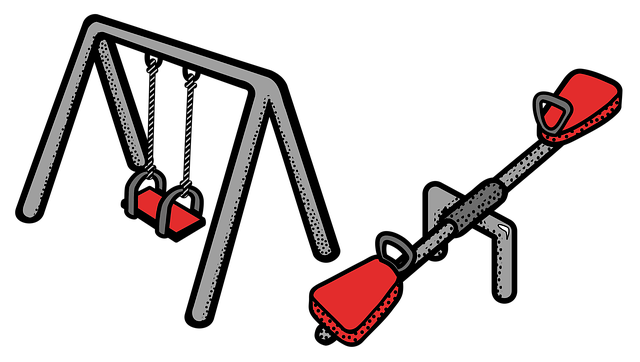Hunterdon County’s sober living homes provide transitional housing for those recovering from substance use disorders. These homes offer a structured, supportive community that promotes sobriety and personal growth through activities like group therapy, educational programs, and skill development. They enforce rules to maintain accountability, such as curfews, drug testing, and household responsibilities, and financial assistance is available for those who need it. The cost of staying in these homes varies based on the level of care, amenities, and duration of stay, with the aim of being accessible to all. Prospective residents should understand the commitment required for living in these homes, which includes adherence to community standards and active participation in their recovery process. The homes are designed to bridge the gap between treatment programs and independent living by fostering a recovery-focused environment that encourages independence, accountability, and integration into society.
Navigating the journey of recovery, individuals often seek environments that foster stability, community, and ongoing support. Hunterdon County’s sober living homes stand as beacons of hope for those striving to maintain sobriety. This article delves into the multifaceted aspects of these residences, from their role in the local landscape to the structured environment they offer. We will explore the myriad benefits of choosing a sober living home within Hunterdon County, including cost considerations and the typical rules that ensure a supportive recovery milieu. Moreover, we will guide you through selecting the most suitable home for your needs, compare local facilities, and highlight the importance of aftercare programs and community involvement in sustained recovery. Additionally, we address financing options, legal considerations, and residency requirements to ensure informed decision-making. Through firsthand accounts and a day-in-the-life glimpse, understand how these homes offer a transformative experience, leading many on a path to long-term sobriety. Join us as we examine the robust support system available in Hunterdon County for those committed to recovery.
- Understanding Sober Living Homes
- Hunterdon County’s Sober Living Landscape
- Benefits of Sober Living in Hunterdon County
- Cost Analysis: Pricing for Sober Living in Hunterdon County
- Typical Rules and Expectations in Sober Living Homes
Understanding Sober Living Homes

Hunterdon County’s sober living homes serve as a transitional environment for individuals who are in recovery from substance use disorders. These residences offer structured, supportive housing where residents can continue their journey toward sobriety outside of traditional treatment centers. The homes provide a framework that encourages maintaining abstinence through mutual support and life skills development. Residents often engage in community activities, attend group therapy sessions, and participate in educational programs that reinforce the principles of recovery.
The rules within these homes are designed to create an atmosphere conducive to sobriety and personal growth. Common household rules may include curfews, mandatory attendance at 12-step meetings or other support groups, random drug testing, and responsibilities such as chores and maintaining a job. These structures not only promote accountability but also help residents adapt to a routine that supports long-term recovery. The pricing for sober living homes in Hunterdon County can vary based on several factors, including the level of care provided, amenities, location, and the length of stay. Many homes offer a sliding scale or payment plans to make their services accessible to those with varying financial means. It’s important for potential residents to understand that while these homes are less expensive than inpatient treatment facilities, they require a commitment to the recovery process and adherence to the community standards set forth by the home.
Hunterdon County’s Sober Living Landscape

Hunterdon County, New Jersey, offers a supportive network of sober living homes that provide structured environments for individuals in recovery from substance use disorders. These residences are integral to the recovery community, offering a transitional space where residents can apply the skills learned in treatment programs while fostering a sense of independence and accountability. The landscape of these homes is characterized by their commitment to maintaining a drug-and-alcohol-free environment, with each home adhering to a set of core principles aimed at promoting sustained recovery. These principles typically include regular participation in mutual-support groups like Alcoholics Anonymous or Narcotics Anonymous, employment or educational engagement, and random drug and alcohol testing to ensure sobriety is maintained.
The cost structures for sober living homes in Hunterdon County vary, reflecting the diversity of services and amenities provided. While some homes offer shared living spaces with basic necessities at a lower price point, others boast private rooms and additional recovery-supportive features, which naturally come with a higher price tag. The average monthly cost can range significantly, from approximately $500 to over $1,500, depending on the level of care and the specific needs of the individual. It’s worth noting that many homes accept various forms of insurance, offer sliding fee scales, or have payment plans available to make recovery accessible to a wider population. The rules and regulations within these homes are designed to reinforce the ethos of community, personal responsibility, and ongoing commitment to recovery, providing a stable foundation for individuals as they reintegrate into society.
Benefits of Sober Living in Hunterdon County

Hunterdon County’s sober living homes offer a structured environment for individuals transitioning from treatment programs to independent living. These residences provide a supportive community where recovering individuals can reinforce their sobriety, develop healthy routines, and rebuild their lives with the support of peers who understand the journey. The benefits of this setting are manifold: residents gain access to a network of recovery-focused resources, including group therapy sessions, 12-step meetings, and educational workshops that complement their path to recovery. Moreover, the homes foster an atmosphere of accountability and mutual respect, encouraging residents to take responsibility for their actions and actively contribute to their shared living space. This environment not only supports sobriety but also promotes personal growth, life skills development, and long-term stability. The proximity to nature in Hunterdon County further enriches the recovery experience, offering tranquil settings that can aid in relaxation and stress reduction, which are crucial for maintaining mental and emotional well-being.
Cost Analysis: Pricing for Sober Living in Hunterdon County

Hunterdon County, nestled in the heart of New Jersey, offers a range of sober living homes designed to provide structured environments for individuals transitioning from addiction treatment programs to independent living. The cost of residing in these homes varies, with factors such as amenities, level of supervision, and program duration influencing pricing. Generally, sober living homes in this region are competitively priced, offering affordable alternatives to more intensive treatment centers. Monthly fees typically cover the basics, including housing, utilities, and a supportive community. Some facilities include additional services like therapy sessions or employment assistance, which may slightly increase the cost. It’s common for these homes to require residents to contribute towards grocery expenses, fostering a sense of responsibility and community engagement. Prospective residents should consider their budget and the specific services included in the pricing structure when selecting a sober living home that aligns with their recovery goals and financial situation. Prices across Hunterdon County can vary from a few hundred to upwards of a thousand dollars per month, depending on the level of care and the range of amenities provided. It’s advisable for individuals to inquire directly with the homes to understand the full scope of what is included in their pricing model.
Typical Rules and Expectations in Sober Living Homes

Residents in Hunterdon County sober living homes are guided by a set of rules and expectations designed to support their recovery journey. These establishments prioritize a structured environment that fosters accountability, responsibility, and community. Typical rules include mandatory attendance at regular 12-step meetings or other structured recovery groups, active participation in the home’s community activities, adherence to a curfew to ensure safety and stability, and a commitment to maintain a clean and orderly living space through assigned chores. Random drug and alcohol testing may also be implemented to uphold sobriety. The expectations extend beyond abstinence; residents are expected to pursue gainful employment or education, engage in individual therapy as recommended, and contribute to the home through a system of responsibilities that mimic those of everyday life. These rules and expectations are not punitive but rather serve as a framework to help individuals maintain their sobriety, rebuild their lives, and prepare for a successful transition back into society.
Residents seeking recovery in Hunterdon County have a structured environment within sober living homes that blend support, autonomy, and accountability. These homes offer a cost-effective path to sustained sobriety, with pricing varying based on amenities and the level of care provided. Prospective residents can expect rules designed to foster a healthy, substance-free lifestyle, ensuring a predictable and supportive recovery journey. As this article has outlined, the benefits of sober living in Hunterdon County are multifaceted, catering to the diverse needs of individuals on the path to recovery. With a robust framework of community support and personal responsibility, these homes stand as testaments to the transformative power of structured living in the pursuit of sobriety.

